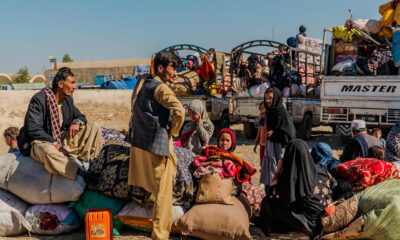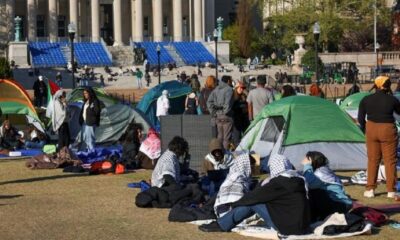World
Israel intensifies southern Gaza offensive; US, UN urge civilian protections
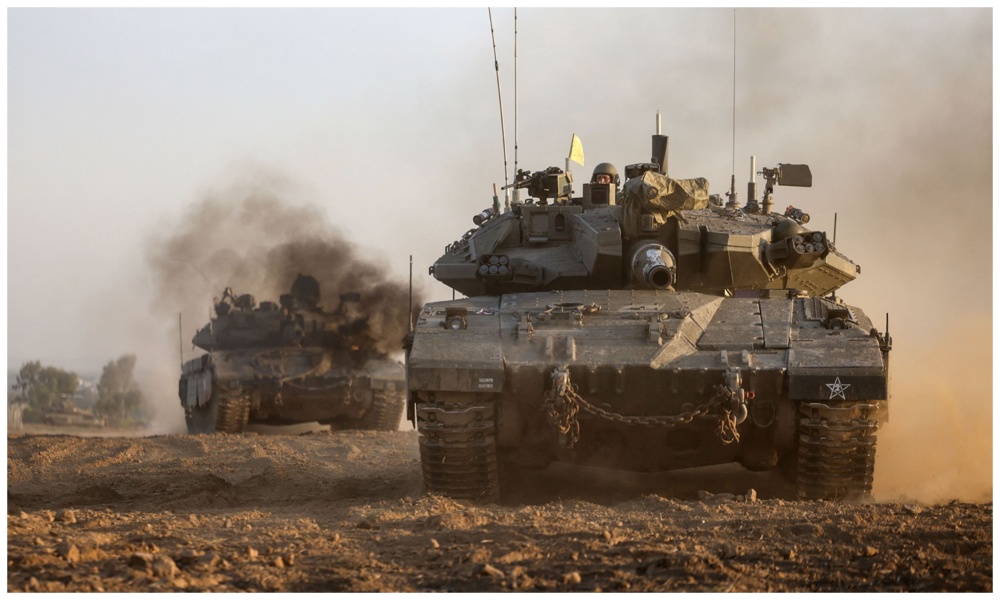
Israeli forces pressed ahead with their air and ground bombardment of southern Gaza Strip, killing and wounding dozens of Palestinians, even as the United States and the United Nations repeatedly urged them to protect civilians.
Israel’s closest ally the United States has said the Israeli offensive in the south should not repeat the “massive” civilian toll it has had in the north, Reuters reported.
But residents and journalists on the ground said the intense Israeli air strikes in the south of the densely populated coastal enclave included areas where Israel had told people to seek shelter.
At the United Nations, Secretary-General Antonio Guterres appealed to Israel to avoid further action that would make the already dire humanitarian situation in Hamas-run Gaza worse, and to spare civilians from more suffering.
“The Secretary-General is extremely alarmed by the resumption of hostilities between Israel and Hamas… For people ordered to evacuate, there is nowhere safe to go and very little to survive on,” U.N. spokesperson Stephane Dujarric said.
Israel largely captured the northern half of Gaza in November, and since a week-long truce collapsed on Friday they have swiftly pushed deep into the southern half.
Hamas ally Islamic Jihad’s armed wing said its fighters engaged in fierce clashes with Israeli soldiers north and east of Khan Younis, Gaza’s main southern city.
Israeli tanks have driven into Gaza across the border and cut off the main north-south route, residents said. The Israeli military said the central road out of Khan Younis to the north “constitutes a battlefield” and was now shut.
Philippe Lazzarini, who heads the UN agency for Palestinian refugees in Gaza (UNRWA), said the resumption of Israel’s military operation was repeating “horrors from past weeks” by displacing people who had been previously displaced, overcrowding hospitals and further strangling the humanitarian operation due to limited supplies.
“The evacuation order pushes people to concentrate into what is less than one-third of the Gaza Strip. They need everything: food, water, shelter, and mostly safety. Roads to the south are clogged,” Lazzarini said.
“We have said it repeatedly. We are saying it again. No place is safe in Gaza, whether in the south, or the southwest, whether in Rafah or in any unilaterally so-called ‘safe zone’.”
As many as 80% of Gaza’s 2.3 million people have already fled their homes in the eight weeks of war that has turned the enclave into a wasteland.
On Monday, Israel ordered Palestinians to leave parts of Khan Younis, indicating they should move towards the Mediterranean coast and towards Rafah, a major town near the Egyptian border.
Desperate Gazans in Khan Younis packed their belongings and headed towards Rafah. Most were on foot, walking past ruined buildings in a solemn and silent procession.
In Washington, officials said it was too early to definitively say whether Israel was following U.S. advice to take concrete steps to ensure protections for civilians, although a State Department spokesperson said it was an “improvement” that Israel was seeking evacuations in targeted areas as opposed to entire cities.
U.S. National Security Advisor Jake Sullivan said Washington expected Israel to avoid attacking areas identified as “no-strike” zones in Gaza.
He said the U.S. had discussed with Israel how long the war with Hamas should continue, but he declined to share that timeline.
A senior Israeli official said it was taking the time to order more precise evacuations in order to limit civilian casualties, but that Israel could not rule them out altogether.
“We did not start this war. We regret civilian casualties but when you want to face evil, you have to operate,” the official said.
Israel launched its assault to wipe out Hamas in retaliation for an Oct. 7 cross-border attack by Hamas gunmen on border towns, kibbutzim and a music festival. The militants killed 1,200 people and seized 240 hostages, according to Israeli tallies – the deadliest single day in Israel’s 75-year history.
World
Police arrest scores of pro-Palestinian protesters on US university campuses
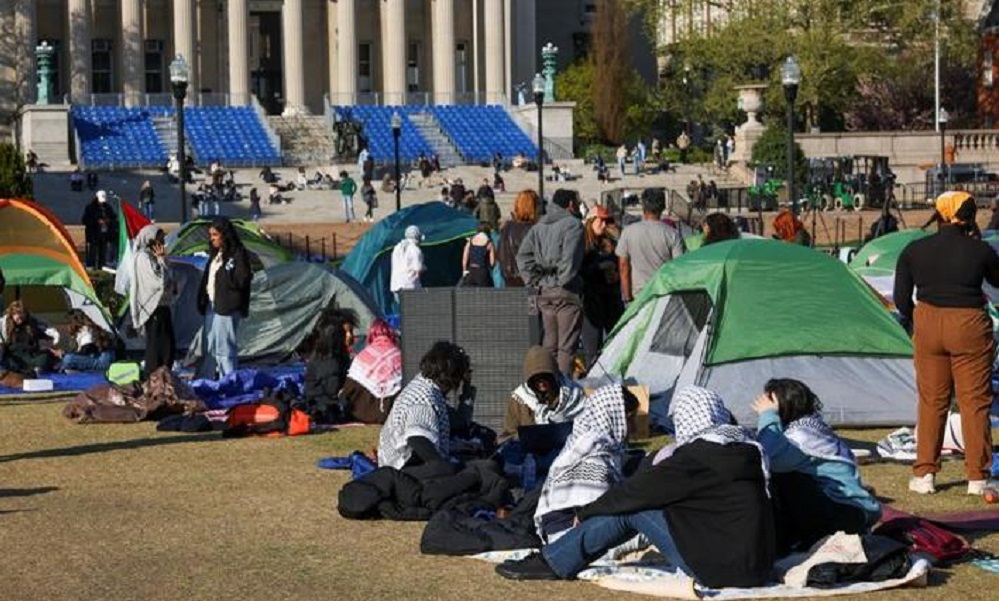
Pro-Palestinian protesters were arrested on a handful of U.S. university campuses on Saturday, as activists vowed to keep up the movement seeking a ceasefire in Israel’s war with Hamas among other demands.
The Indiana University police department in Bloomington said in an emailed statement that 23 protesters were arrested there.
Indiana State Police along with Indiana University police told demonstrators they could not pitch tents and camp on campus. When the tents were not removed, police arrested and transported protesters to the Monroe County Justice Center on charges of criminal trespass and resisting arrest.
“The Indiana University Police Department continues to support peaceful protests on campus that follow university policy,” the police statement read.
Pro-Palestinian protests have spread to college campuses across the U.S., stoked by the mass arrest of over 100 people on Columbia University’s campus last week.
In addition to a ceasefire, protesters are demanding that their schools divest from companies involved with Israel’s military and seeking an end to U.S. military assistance for Israel along with amnesty for students and faculty members who have been disciplined or fired for protesting.
School leaders at several universities have responded in the past week by asking police to clear out camps and arrest those who refuse to leave. While saying they defend free speech rights to protest, the leaders say they will not abide activists infringing on campus policies against hate speech or camping out on university grounds.
Massachusetts State Police said in a statement that they helped clear out a protest encampment at Northeastern University in Boston and that 102 protesters who refused to leave were arrested and will be charged with trespassing.
Northeastern University said in a statement on social media that it decided to call in police as “what began as a student demonstration two days ago was infiltrated by professional organizers with no affiliation to Northeastern.”
At Arizona State University, campus police arrested 69 protesters early Saturday, the school said in a statement.
The university said “a group of people – most of whom were not ASU students, faculty or staff – created an encampment and demonstration” and were arrested and charged with criminal trespass after refusing to disperse. – REUTERS
World
Hamas says it received Israel’s response to its ceasefire proposal
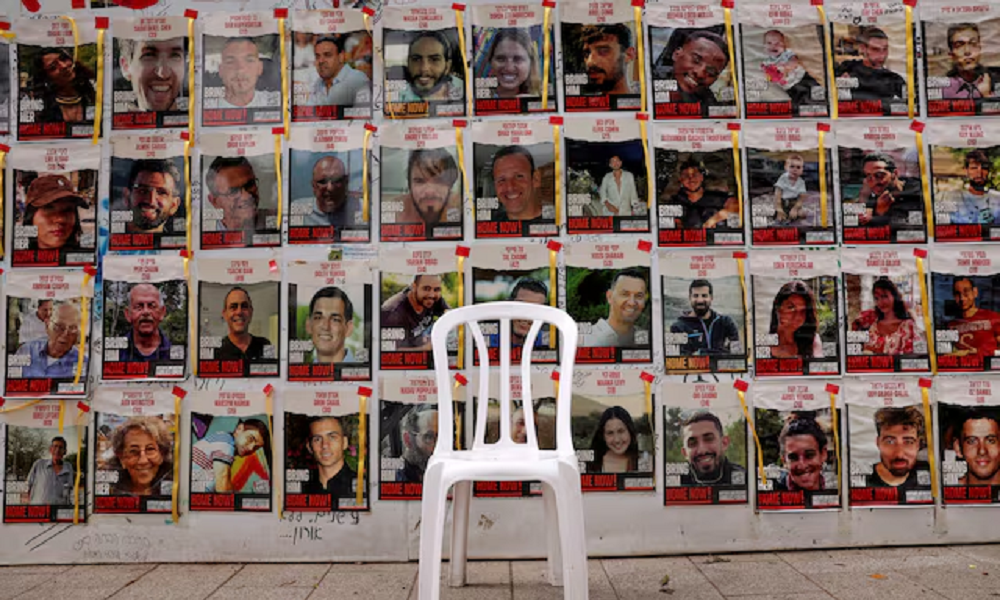
Hamas said it had received on Saturday Israel’s official response to its latest ceasefire proposal and will study it before submitting its reply, the group’s deputy Gaza chief said in a statement.
“Hamas has received today the official response of the Zionist occupation to the proposal presented to the Egyptian and the Qatari mediators on April 13,” Khalil Al-Hayya, who is currently based in Qatar, said in a statement published by the group.
After more than six months of war with Israel in Gaza, the negotiations remain deadlocked, with Hamas sticking to its demands that any agreement must end the war.
An Egyptian delegation visited Israel for discussion with Israeli officials on Friday, looking for a way to restart talks to end the conflict and return remaining hostages taken when Hamas fighters stormed into Israeli towns on Oct. 7, an official briefed on the meetings said.
The official, who spoke on condition of anonymity, said Israel had no new proposals to make, although it was willing to consider a limited truce in which 33 hostages would be released by Hamas, instead of the 40 previously under discussion.
On Thursday, the United States and 17 other countries appealed to Hamas to release all of its hostages as a pathway to end the crisis.
Hamas has vowed not to relent to international pressure but in a statement it issued on Friday it said it was “open to any ideas or proposals that take into account the needs and rights of our people”.
However, it stuck to its key demands that Israel has rejected, and criticised the joint statement issued by the U.S and others for not calling for a permanent ceasefire and the withdrawal of Israeli forces from Gaza.
White House national security adviser Jake Sullivan said on Friday he saw fresh momentum in talks to end the war and return the remaining hostages.
Citing two Israeli officials, Axios reported that Israel told the Egyptian mediators on Friday that it was ready to give hostage negotiations “one last chance” to reach a deal with Hamas before moving forward with an invasion of Rafah, the last refuge for around a million Palestinians who fled Israeli forces further north in Gaza earlier in the war.
Meanwhile, in Rafah, Palestinian health officials said an Israeli air strike on a house killed at least five people and wounded others.
Hamas fighters stormed into Israeli towns on Oct. 7, killing 1,200 people and capturing 253 hostages. Israel has sworn to annihilate Hamas in an onslaught that has killed more than 34,000 Palestinians.
World
In Beijing, Blinken meets Xi and raises US concerns about China’s support for Russia

U.S. Secretary of State Antony Blinken raised concerns on Friday about China’s support for Russia’s military, one of the many issues threatening to sour the recent improvement in relations between the world’s biggest economies.
Blinken raised the matter during five-and-a-half hours of talks with China’s top diplomat Wang Yi in Beijing, the latest high-level contact between the countries that have reduced the acrimony that pushed ties to historic lows last year.
The U.S. diplomat is due to wrap up his visit on Friday with little progress on a raft of contentious issues including U.S. complaints about cheap Chinese exports. Instead, both sides are focusing on pragmatic issues like people-to-people exchanges.
“The Secretary discussed concerns about PRC support to the Russian defense industrial base,” U.S. State Department spokesperson Matthew Miller said, adding the two sides also discussed Taiwan, the South China Sea and other flashpoints.
The PRC is short for China’s official name, the People’s Republic of China.
Despite its “no limits” partnership with Moscow, China has steered clear of providing arms for Russia’s war in Ukraine.
But U.S. officials warn its companies are helping the weapons industry with an unprecedented build up that has helped to turn the tide of the war. For example, bigger machine tool imports from China have helped Russia increase its ballistic missile production, they say.
The U.S. officials say such assistance risks hurting the broader bilateral relationship, even as ties stabilise after being hit by then-House Speaker Nancy Pelosi’s visit to Taiwan in 2022 and the U.S. downing of a suspected Chinese surveillance balloon in February 2023.
China has said it has not provided weaponry to any party, adding that it is “not a producer of or party involved in the Ukraine crisis”. However, it says that normal trade between China and Russia should not be interrupted or restricted.
STEADYING THE SHIP
In addition to his talks with Wang, Blinken met Chinese President Xi Jinping, who reiterated Beijing’s concerns that the United States was suppressing its economic development.
“This is a fundamental issue that must be addressed, just like the first button of a shirt that must be put right, in order for the China-U.S. relationship to truly stabilise, improve and move forward,” Xi said.
Earlier, Wang told Blinken that the “giant ship” of the China-U.S. ties had stabilised, “but negative factors in the relationship are still increasing and building.”
Wang also said the U.S. had taken “endless” measures to suppress China’s economy, trade, science and technology, equating such steps to containment.
“And the relationship is facing all kinds of disruptions. China’s legitimate development rights have been unreasonably suppressed and our core interests are facing challenges,” Wang told Blinken.
The agenda for the talks had been set during the November summit between Biden and Xi in San Francisco and a follow-up call in April.
Underscoring the growing discord between the two sides, hours before Blinken landed in China on Wednesday, U.S. President Joe Biden signed a bipartisan bill that included $8 billion to counter China’s military might, as well as billions in defence aid for Taiwan and $61 billion for Ukraine.
Wang said the U.S. must not step on “red lines” covering sovereignty, security and development interests – an apparent reference to Taiwan, the democratically governed island that China claims as its own, and the disputed South China Sea.
Other issues on the table include artificial intelligence and the U.S. push for progress on the curbing of China’s supply of the chemicals used to make fentanyl.
Blinken, along with senior U.S. officials focused on anti-narcotics collaboration with China, met China’s minister of public security, Wang Xiaohong, to discuss the fentanyl issue.
Ahead of Friday’s talks, U.S. Treasury Secretary Janet Yellen signalled that Biden was not taking any options off the table to respond to China’s excess industrial capacity.
Wang said that the U.S. should stop “hyping up” the “false narrative” of China’s overcapacity.
(Reuters)
-

 World4 days ago
World4 days agoNorth Korea officials visit Iran in a rare public trip
-

 Sport4 days ago
Sport4 days ago‘Serious talent’ Fraser-McGurk bonds with Warner to light up IPL
-

 Latest News4 days ago
Latest News4 days agoOver 1,000 Afghan refugees forced out of Pakistan in one day
-

 Sport2 days ago
Sport2 days agoAfghanistan beat Iraq 5-3, inch closer to Futsal World Cup berth
-

 Regional2 days ago
Regional2 days agoNew UK sanctions target Iranian drone industry
-

 Regional3 days ago
Regional3 days agoTurkey accuses U.S. of double standards over Gaza in rights report
-

 Latest News2 days ago
Latest News2 days agoEU allocates 17 million euros to support Afghans on the move
-

 Latest News1 day ago
Latest News1 day agoPakistan extends registered Afghan refugees’ stay till June 30


